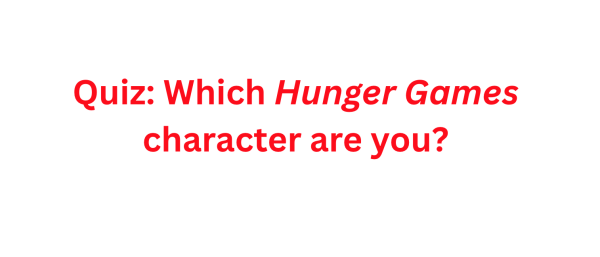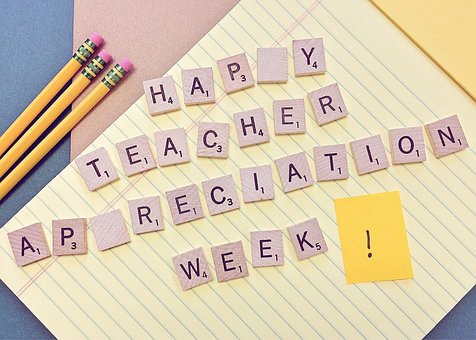Improving and maintaining mental health during quarantine

Assistant editor, Alexandra Grosso, gives advice for staying strong and healthy during quarantine.
“Self care” is defined as “the practice of taking action to preserve or improve one’s own health.” Quarantining during the Covid-19 outbreak is the obvious action to take in the pursuit of preserving physical health, and as the entirety of the nation takes the appropriate steps to keep themselves and their neighbors safe, with that comes the drastic shift towards spreading information as to how to preserve that. Washing hands, keeping distance from others when out on a walk, staying home when sick, and others are examples of the measures people have taken in order to prevent the spread of the virus.
In this current America, with the worry, confusion anxiety, and pending questions surrounding the “whens” and the “whats” of the coronavirus, we have moved our attention to simply associate “care” with taking care of the physical body. The scope of what we view care to be has been limited, though not purposefully. But we need to develop a more expansive definition of what “self care” means and looks like during this time, which begins with addressing mental health concerns.
Being in social isolation coincides with a general feeling of loneliness. Being in a state of loneliness can encompass all different types of people, from those having to be quarantined away from family or entirely by themselves to those with limited access to technology, etc. Feeling lonely is a detriment to both mental and physical health, which we are trying to bolster during this time.
According to professor of neuroscience and psychology Julianne Holt-Lunstad, “lack of social connection heightens health risks as much as smoking 15 cigarettes a day or having alcohol use disorder… [and] loneliness and social isolation are twice as harmful to physical and mental health as obesity.” So let’s say for a moment that a portion of people feeling lonely during social isolation are experiencing these exact symptoms of loneliness such as these during this time. If this is true, it’s detrimental. Various anti-smoking campaigns, such as Quit Victoria, have reported that, “While there isn’t enough evidence to be certain that people who smoke are more likely to get COVID-19, we know that they are at a higher risk of getting lung and chest infections in general. This means that it’s more likely than not that people who smoke have a higher risk of getting COVID-19 compared to people who don’t smoke”, and the Global Health Organization says that, “A glass of wine seems fine, but repeated rounds—especially of hard liquor—or increased alcohol use over days or weeks might suppress immune responses or lead to a greater susceptibility to pneumonia. (Pneumonia has developed in cases of moderate-to-severe COVID-19, the illness caused by the novel coronavirus.)”
In order to maintain a healthy state of mentality during this time of social isolation, the following are some tips for both parents and teens to keep in mind.
Try and eat three meals a day: It’s easy to sleep in when there’s maybe nowhere specific that you have to go. Sleeping in later than normal might cause you to skip breakfast, which would lead to an overall altered eating schedule. According to Harvard Health research, “Eating fewer than three times a day puts you at risk for overeating and choosing less healthy foods. Also, the quality of food can help with hunger management and weight loss.” And if eating three meals a day leads to healthier eating choices, this can be extremely beneficial to mental health. Though “food-mood connection” studies have been limited, according to FamilyDoctor.Org, a website with thousands of articles written by members of the American Academy of family physicians, “people who don’t have a healthy diet were more likely to report symptoms of depression or other mental health issues. And there appears to be some association between certain nutrients in food and emotional well being. These nutrients include omega-3 fatty acids, folic acid, vitamin D, magnesium, B vitamins, and tryptophan. These are all found in foods that are part of a healthy diet.” Not only that, but the simple act of eating three meals a day can put you on a healthier mental path. The Mental Health Foundation says, “Regular mealtimes which are shared provide a sense of rhythm and regularity in lives. They offer a sense of containment and familiarity, and can evoke deep feelings of contentment and security. Humans need structure and routine. Mealtimes offer people the opportunity to stop, to stand still psychologically, to reflect on their day and days ahead, and to listen to and interact with others. Mealtimes are also a grounding opportunity, a time when anxieties can be expressed and you can be listened to.” Mealtimes overall are just the best way to maintain mental health.
Do some sort of physical activity: Not everyone is big on doing hour long intense workouts, but finding an enjoyable way to get your body moving can make it extremely easy to maintain a healthy mental state. A study done by the Harvard T.H. Chan School of Public Health found that symptoms of depression were reduced by 26% when study participants walked for an hour or ran for fifteen minutes. Simply taking a few laps around the block or going on a quick run or jog is easy to do in social isolation, and will lead to that increase in mental health. And even if you find yourself struggling to motivate yourself to get active in the first place, simply going outside as often as you feel that you can would also do wonders for your mental state. Susan McQuillian, MS, RDN, in an analyzation of a University of Utah in Salt Lake City that reviewed the connection between mental health and nature said the following, “More than 80% of the relevant research papers reviewed for this study reported at least one association between outdoor activities and positive mental health outcomes, while none reported a single negative mental health outcome. The most common positive benefits seen were significant reductions in stress and anxiety after time spent in nature, as well as increased positive affect, or elevated mood. The overall positive effects documented in these studies were often described using terms such as “psychological healing,” “increased sense of well-being,” and “restorative.” While there were many encouraging results, however, fewer associations were found between nature-based activities and increased positive affect in studies that examined the potential benefits for those with mental health diagnoses such as major depression and PTSD.”
Parents, ease off on the screen time and phone restrictions: Now, hear this out: your kids have been in quarantine for nearly a month. This has caused a dramatic shift in routine; what once included going to school or hanging out with friends on the weekends has now been reduced to seeing the members of typically only their immediate family. According to psychologist Mariana Plata, “The importance of routine has been associated with a variety of mental health conditions, including bipolar disorder, addiction, depression, among others. The reason behind this is that when we organize ourselves and know what to expect, it’s easier to actively work towards counteracting the thoughts and symptoms of any of the aforementioned mental health conditions.” People are more stable mentally when they have some sort of routine, and communicating with friends is a part of that. Parents will likely see an increase in their child’s phone usage: that’s okay. They’re likely not wasting countless hours playing phone games or scrolling thoughtlessly through Instagram. They’re using their social media tools, such as Snapchat and texting, to connect with the individuals who they miss the most. They might be staying up a little later: that’s also okay. They’ve been spending the last nearly four weeks in the same house doing the same activities: FaceTiming a close friend late into the night is not only normal, but it should be allowed. Teenagers especially are aching to connect, and taking away their tools to do so would likely only lead to feelings of resentment or “being stuck”, which is beneficial to no one. And, if you are taking their phone away because they “need to be up early the next day”, rethink it. If they are going to sleep late they still have to wake up early the next day, and the exhaustion they might feel might teach them the desired lesson.
In conclusion, mental health is extremely important, especially now. These three measure can help people take better care of themselves, to much benefit in the long run. Eventually, regardless of how long it will last, quarantine is not a forever arrangement, and coming back from it with a refreshed mental state is one of the best things everyone can do.

Alexandra Grosso is a junior at Homestead who was been writing for the Highlander Online for the past three years. She is best known for her articles on...





